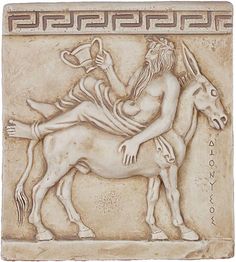 The last few days I’ve been distracted from my planned reading and posting as a result of reading something quite unexpected by Andreas Bedenbender in Frohe Botschaft am Abgrund: das Markusevangelium und der Jüdische Krieg. Since I don’t read German (except sort of through machine translators) and since most of Bedenbender’s references are in German, and since I don’t sit in a major library, that has been no easy task. But the gist of the surprising suggestion arises from one particular Greek word behind the passage in the Gospel of Mark about Jesus’ entry into Jerusalem, 10:8 (RSV):
The last few days I’ve been distracted from my planned reading and posting as a result of reading something quite unexpected by Andreas Bedenbender in Frohe Botschaft am Abgrund: das Markusevangelium und der Jüdische Krieg. Since I don’t read German (except sort of through machine translators) and since most of Bedenbender’s references are in German, and since I don’t sit in a major library, that has been no easy task. But the gist of the surprising suggestion arises from one particular Greek word behind the passage in the Gospel of Mark about Jesus’ entry into Jerusalem, 10:8 (RSV):
And many spread their garments upon the way; and others branches (στιβάδας), which they had cut from the fields.
Branches cut from the fields, presumably from trees in the fields. Would not they become an obstacle for any donkey trying to navigate the road? Other evangelists do not use that word, “branches”. Compare:
Matthew 21:8 uses κλάδους, also translated as “branches”, but not the same word as in Mark.
Luke 19:36 scraps that Markan detail completely and says only that the crowd spread their garments on the ground. No branches at all.
John 12:13 uses a different word again, “branches of palm trees” (τὰ βαΐα τῶν φοινίκων), and more sensibly than in Mark implies that they were waving them rather than setting up an obstacle course for the donkey.
Now it appears that Mark’s word for “branch/branches”, (στιβάς / στιβάδας), is unique in the Bible:
For στιβάς is found, for example, in Euripides and Herodotus, but in the New Testament it is nowhere except in Mark 11:8. It is missing in the LXX, in the Greek Pseudepigraphen to the AT, in Philo and Josephus. What, then, did Markus take after “straw-shafts,” when “branches” were within his reach? That κλάδος, which he used in 4:32 and in 13:28, will scarcely have disappeared! (Bedenbender, p. 312, adapted from machine translation.)
So Mark elsewhere used the more common word for “branches” and that makes his use of “stibas” in the triumphal entry scene more odd.
Andreas Bedenbender does not argue “strongly” for Jesus’ triumphal entry in the Gospel of Mark being invested with Dionysiac allusions, but he does point to some details that make the question reasonable. Continue reading “Jesus, a new Dionysus Triumphantly Entering Jerusalem?”
